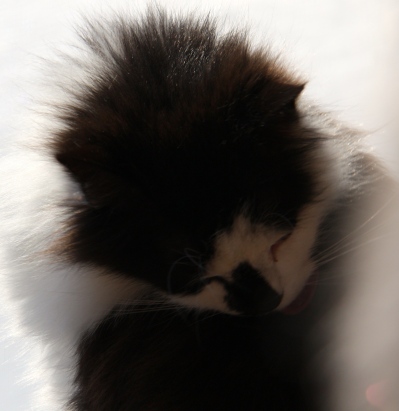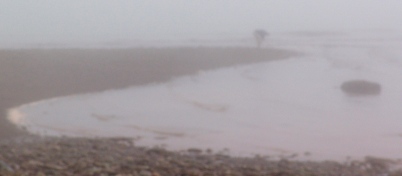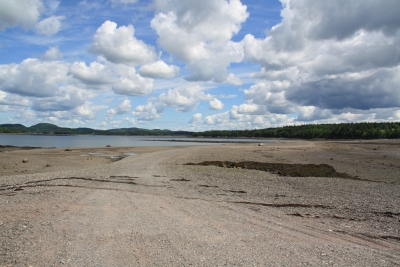
Thursday’s Thoughts
Why I Write III
Intertextuality
29 March 2018
In exile, in La Torre de Juan Abad, the Spanish poet Francisco de Quevedo wrote a sonnet entitled Retirado en la paz de estos desiertos / Withdrawn into the peace of these deserted lands. The first quatrain reads:
Retirado en la paz de estos desiertos, / con pocos pero doctos libros juntos, / vivo en conversación con los difuntos, / y escucho con mis ojos a los Muertos. Reduced to an instant rough and ready English translation, this reads: ‘Withdrawn into the peace of these deserted lands, / together with a few quite learned books, / I live in conversation with dead men, / and listen to them speaking through my eyes.’
Talking to the dead by reading their live words on the page: this was my first introduction to the theory of intertextuality, written words speaking to written words across the medium of written texts. Intertextuality, then, living texts talking to living texts, be it in print, be it in digital form on the computer.
How does this relate to Why I Write? Orwell writes an article entitled Why I Write. Joan Didion reads that article, replies to it, and also writes an article entitled Why I Write, and her article is, in certain measure, an intertextual dialog with George Orwell. I read both these articles and I, in my turn, join in the conversation, responding, in my own way, first to George Orwell, and then to Joan Didier. Now I have introduced Francisco de Quevedo (Spain, 1580-1645) into this tripartite series and he too has joined the conversation linking why I write intimately to the theme of why I read. For a fuller discussion of Why I Read, consult the full version of Quevedo’s sonnet, particularly the final tercet. As you read these words, you too are drawn into this intertextual conversation, one that has gone on for much longer than we realize.
So, why do I write? In part, it is to join in and continue these conversations and thus to honor the memories of those who have gone on before, Quevedo writing to González de Salas, Joan Didion responding to George Orwell. However, I see writing not only as a conversation, a sharpening of arguments, a learning process in which speaker (writer) and spoken to (reader) exchange ideas, but also as a construction, like the well-wrought urn of Cleanth Brooks (new criticism), or the polished work of art of the phenomenologists. I see the written work of art as a construction, and I want that construction to be as polished and as well-made as I can make it. In addition, I have things I want to say, poems I want to write, stories I want to tell, and I want these things, poems, stories (constructs all) to be the best that they can be. I want to reach out to my reader (readers, if there are two or more of you) and say “Hey, stop awhile. Read this. What I have written is well-worth reading.”
Mikhail Bakhtin uses the term chronotopos, referring to ‘man’s dialog with his time and his place’. I write so that I too may dialog with my time and my place. More, I write in part to establish my time and to cement myself in my place. Time and place are both variable. Is Quevedo (Spain, 1580-1645) a part of my time (20th / 21st Century) or my place (currently Island View, New Brunswick, Canada)? The moment I draw him into the intertextual conversation, as I have done here, he shares time and place with me, and with you, as you read this. So, among other reasons, I write to establish my place not only within this time in which I live, but also within the great chain of intertextual writing that flows backwards and forwards from the earliest times. Only I can do that for myself. Nobody else can do it for me. Is it important that I do so? For me, yes, it is very important. Sometimes, in this life, we walk a long way across a very lonely shore. But we leave footprints behind us, footprints that the wind will fill with sand, footprints that the tide will wash away … we are aware of that but we still walk on, and we still leave footprints.
Reading as dialog, dialog as a means to establish ourselves, writing as a way to cement our ideas, to polish them, to craft them into the shape of that well-wrought urn, that well-wrought urn placed in public where it can be viewed, or in a private place where only close friends can see it and admire it … but something tangible, something solid, something well-wrought, something that will say, ‘yes, I have walked this way’ and ‘yes, I have left footprints’, however dainty, however small, however temporal, however fragile in light of wind and tide … but a footprint, the footprint of Man Thursday, on an otherwise deserted shore … to leave footprints … to sketch the silver points of Lucifer, the light-bearer, the evening star, as he stands strong against the encroaching night … that is Why I Write.









